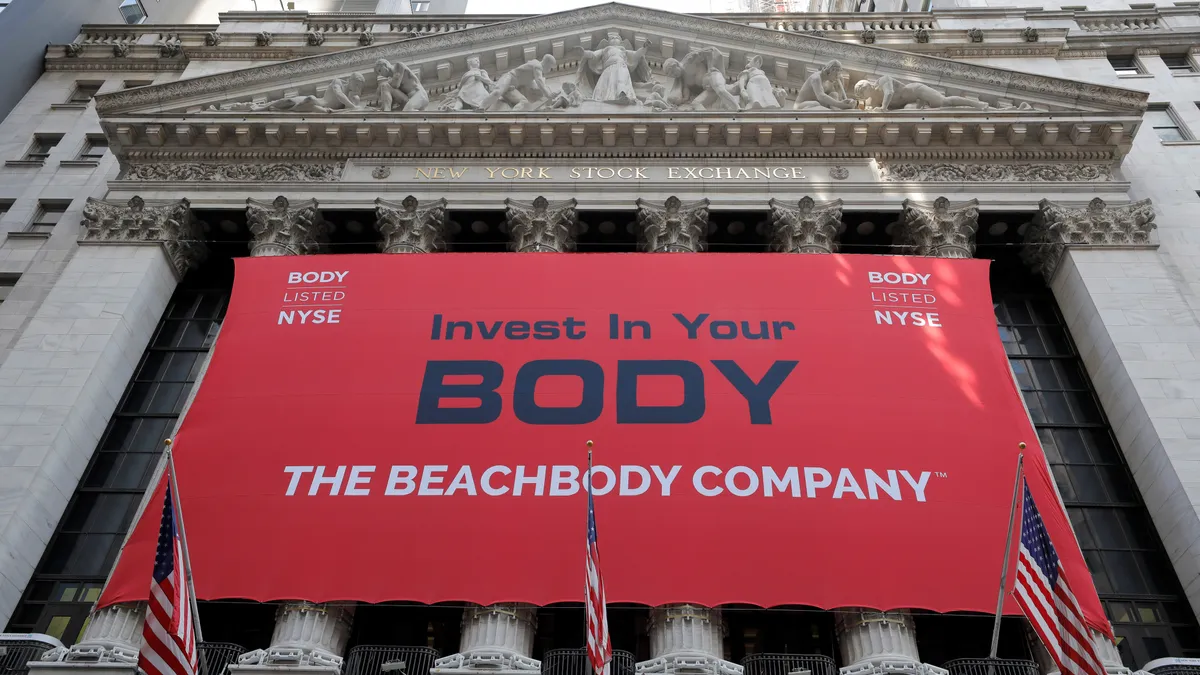Dive Brief:
- The Beachbody Co., a multilevel marketing company that sells workout videos, nutritional supplements and other diet- and wellness-related goods and services, misclassified its sales workforce as independent contractors, a direct sales coach has alleged in California lawsuit Lyons v. The Beachbody Co.
- According to the putative class-action suit, filed May 22, Beachbody and other MLMs rely on a direct-sales exemption under California law, which applies to those involved in “in-person” sales, such as those who go door to door. The exemption does not apply to Beachbody’s modern, online business model, in which “Beachbody accepts and processes the sales and fulfills the orders, while also collecting and benefiting from the consumer data it acquires from these leads,” the lawsuit alleges.
- Beachbody pushed back against the allegations in a statement to HR Dive. “The independent contractor status of direct sellers is well recognized on a federal and state level. California’s updated contractor law (AB5) includes an express exemption for network marketing distributors as part of a well-established legal framework that allows distributors to remain independent and allows them to work as much or as little as they want, controlling their own schedules,” the company said. “We will vigorously defend ourselves against these allegations.”
Dive Insight:
Multilevel marketing companies, which often appeal to workers by suggesting they can leave the hierarchical corporate world and be their own boss, have been under fire in the legal sphere for years — and attracted the eye of the Federal Trade Commission — due to allegations of unfair and illegal pay practices, including functionally operating as pyramid schemes.
In 2019, Washington State Attorney General Bob Ferguson filed a lawsuit against apparel company LuLaRoe, alleging that it made deceptive claims regarding profitability and that it “constituted a pyramid scheme.” In 2021, LaLuRoe settled the lawsuit for $4.75 million, which Ferguson said would be paid out to Washingtonians who were deceived by the company.
In 2016, Herbalife, a dietary supplement company, agreed to pay $200 million and restructure its business operations after the FTC charged that it deceived sellers into believing they could earn substantial sums of money. “The small minority of distributors who do make a lot of money … are compensated for recruiting new distributors, regardless of whether those recruits can sell the products they are encouraged to buy from Herbalife,” the FTC charged in its press release.
An analysis of MLMs conducted by the AARP in 2018 found that of the roughly 600 current or previous MLM sellers surveyed, nearly half reported losing money in the venture and about one-quarter reported making a profit. More than half reported that the company’s depiction of their chance for financial success was “not too accurate” or “not at all accurate.” Of those who made money, most made $5,000 or less; only 3% made $25,000 or more, AARP reported.
California — where the Beachbody lawsuit was filed — has been a testing ground for the future of progressive labor law when it comes to independent contractor rules. California Assembly Bill 5, or AB5, took effect in January 2020, establishing a three-pronged “ABC” test which requires a worker be classified as an employee unless they meet all of three conditions:
- (1) The worker is free from the control and direction of the hiring entity in connection with the performance of the work, both under the contract for the performance of the work and in fact;
- (2) The person performs work that is outside the hiring entity’s business; and
- (3) The person is routinely doing work in an independently established trade, occupation, or business that is the same as the work being requested and performed.
The law has met with mixed reactions, however. Uber, Lyft, DoorDash and other gig companies that classify drivers as independent contractors successfully funded a ballot initiative, Proposition 22, to exclude drivers from the AB5 test. In November 2020, voters passed the measure by 59%.
The Beachbody complainant is not the first to use AB5 to call into question the MLM industry’s reliance on workers’ independent contractor classification. An Amway Corp. worker filed suit in 2020 in Orage v. Amway Corp., alleging the corporation misclassified him due to the then-newly amended AB5 test. As of the most recent court filings, the case appears to be heading toward arbitration.














